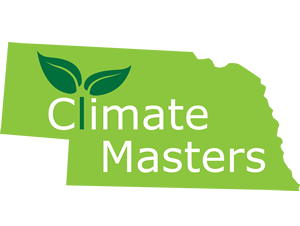
Climate Masters of Nebraska, a new program at the School of Natural Resources, will share proven ways to act locally to save money, protect the environment and reduce greenhouse gas emissions, say the organizers.
"When people hear about climate change, people think in terms of a global issue," said Tapan Pathak, Extension educator in climate variability, who is leading the project. "People get overwhelmed, and they think, 'What can I do?' This is an action-based program to help people understand what they can do that's good for people and for the environment."
The project, funded by the U.S. Environmental Protection Agency, will teach 50 community volunteers various ways that they as individuals can reduce greenhouse gas emissions. In exchange, volunteers must commit to providing 30 hours of education to others in the community.
Cleaner Greener Lincoln, the mayor's sustainability initiative, is a project partner.
The first 10-week Climate Masters course will begin in March 2012, meeting one evening per week, and will include field trips to locations such as a landfill, said Tonya Bernadt, education and outreach specialist at the National Drought Mitigation Center. A second round of training will begin in January 2013.
Classes will focus on the basics of climate change, home energy, transportation, green building, renewables, yards, consumption and waste, food, home water conservation, preparing for climate change, consultations and outreach, and offsets.
"Anybody can come," said Natalie Umphlett, regional climatologist for the High Plains Regional Climate Center. "You don't have to have a science background."
She added that even if people don't accept that greenhouse gases are contributing to global warming, the recommended actions will save people money, help the environment, and lead to healthier eating.
"Whoever is willing to learn from this action-based training and is willing to educate other community members is well-suited for the Climate Masters program," Pathak said.
“The City of Lincoln is pleased to support the Climate Masters program for several reasons,” said Milo Mumgaard, senior policy aide for sustainability in the office of Lincoln Mayor Chris Beutler. “In particular, the program will enable community volunteers to be even more informed about how their day-to-day practices affect the environment, and how they can share this knowledge with others. Lincoln is proud of its high quality of life, and the Climate Masters program continues that tradition.”
Climate Masters, which is similar to master gardener and master naturalist programs, started at the University of Oregon. Researchers there found that the most active participants in Climate Masters reduced household greenhouse gas emissions by an average of about two tons per year.
Participants in the program will receive printed copies of course materials adapted for Nebraska. The materials will also be available on the web.
For more information or to register, visit the Climate Masters website: http://ClimateMasters.unl.edu
More details at: http://go.unl.edu/my4